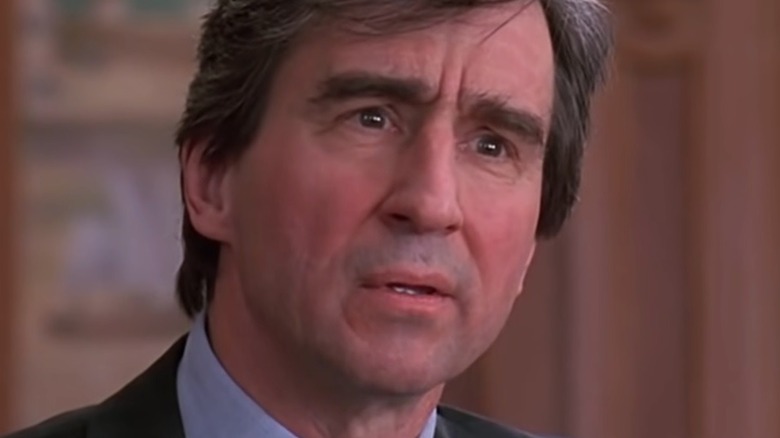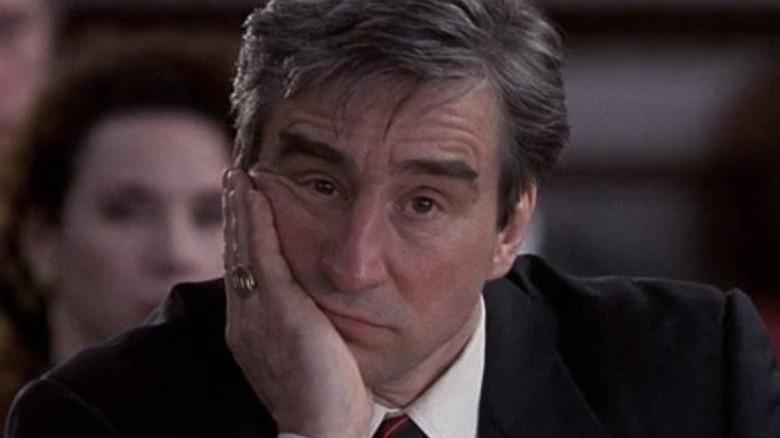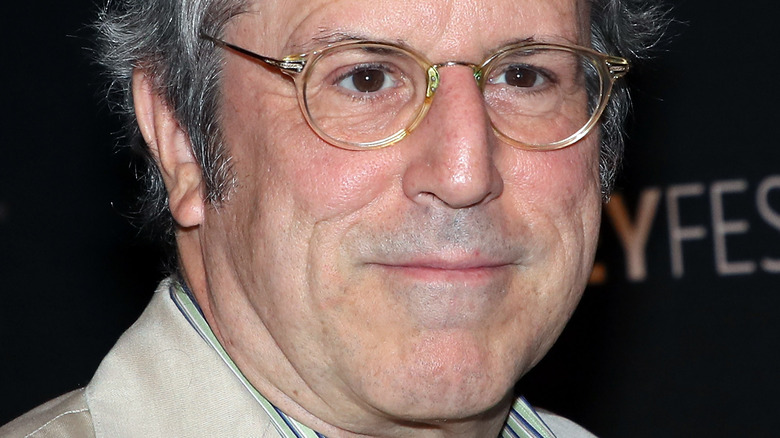The Story Behind The Controversial Gunshow Episode Of Law & Order
Unlike some of its more action-heavy spin-offs, the original iteration of "Law & Order" focuses heavily on the courtroom and how a case unfolds in front of a judge and jury. Due to the nature of this show, some of the topics that come up are very timely for the time the episodes air and quite controversial. Sometimes, the verdict of each case doesn't go the way it should have, leaving the audience stuck with a horrible sense of realism. When a show highlights the follies of our justice system, it tends to ruffle some feathers.
One episode that really got people talking was the Season 10 premiere in 1999. Simply titled "Gunshow," this particular episode focuses on a topic that has become more and more of a real-world fear for Americans everywhere: gun violence. The episode doesn't just focus on gun violence, though. It turns its fury upon gun manufacturers who make buying modified weapons way too easy.
Why Gunshow hits so close to home
During a statement to Buzzfeed, executive producer and writer Rene Balcer, who co-wrote the episode with Dick Wolf, spoke out about the importance of "Gunshow." This 2017 statement was made in the wake of the mass shooting in Las Vegas that saw 58 dead and over 800 injured (per History). "I wrote 'Gunshow' in 1999 because I wanted to call out the gun profiteers who marketed easily modified (wink-wink) semi-automatic assault weapons to the public and then hid behind the Second Amendment when these weapons were modified to full automatic and used in mass killings," Balcer explained.
In the episode in question, a man uses a gun to commit a mass shooting in Central Park. Believing that the gun manufacturer is at fault for negligence in allowing their weapon to be easily modified, Jack McCoy (Sam Waterston) takes the company to court and wins the case. However, after the jury rules in his favor, the judge immediately overturns the ruling, noting that because it is a constitutional matter, the verdict likely wouldn't stand up to an appeal.
"In real life, nothing has been done in the years since to regulate and hold accountable those businesses that make and sell easily modified semi-automatic weapons," Balcer continued. Although the episode aired in 1999, Balcer's statement almost 20 years later indicates that if he'd written the episode now, it would likely go the same way.
This ending is impactful because it highlights the reality of a case like this. This is a constitutional issue and gun laws are a huge topic of debate in America. Balcer weighed in on that debate during his statement.
Rene Balcer elaborates on the controversial episode's importance
"Back in 1999, I wanted to make the point that reasonable people can disagree about the Second Amendment. Most Americans would agree that the Second Amendment is not a blank check," Rene Balcer continued in his Buzzfeed statement.
The gun law debate has led to a wide range of viewpoints. Some believe that Americans shouldn't own firearms, others push for reforms or for a stricter application process, and there are those who believe that restrictions of any kind are unconstitutional. "Law & Order" airing an episode about persecuting a gun manufacturing company mirrors aspects of that debate in a fictional setting. And Balcer wasn't shy about letting his opinions on the subject be known in his statement to Buzzfeed.
"Freedom of movement is another right enshrined in the Constitution and yet everyone agrees that you need a driver's license to get around, that you can't drive a tank or a Formula One car on the freeway," he said. "Reasonable and strictly enforced local and federal gun laws, along with a national database, could put a dent in the body count."
There will always be a counterargument to points like Balcer's, even in the face of the staggering number of mass shootings that have happened in America. "The NRA has successfully defended the unfettered right of companies portrayed in 'Gunshow' and of gun owners to make and purchase easily modified semi-automatic weapons," Balcer said, further emphasizing why episodes like "Gunshow" need to exist at all.


